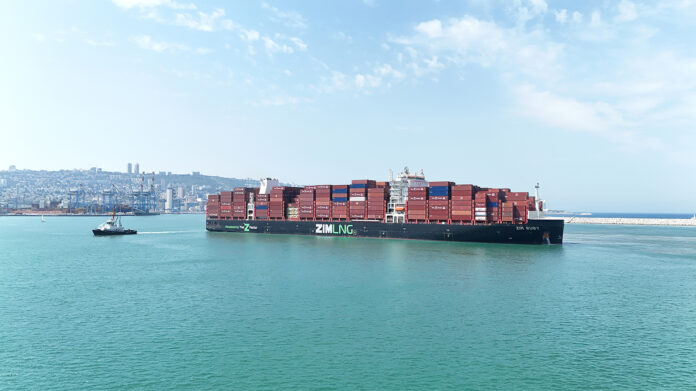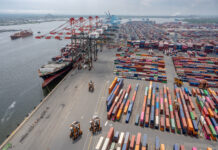
ZIM Integrated Shipping Services has reported its financial results for the third quarter of 2025, posting lower earnings year over year as freight rates and volumes continued to decline in a challenging global trading environment.
ZIM recorded net income of USD 123 million, compared with USD 1.13 billion a year earlier, equal to USD 1.02 diluted earnings per share. Quarterly revenues totalled USD 1.78 billion, a 36% decrease from 2024. Carried volume slipped 5% to 926,000 TEUs, while the average freight rate fell 35% to USD 1,602 per TEU.
Operating income (EBIT) for the quarter was USD 259 million, sharply lower than the USD 1.24 billion reported in the same period last year. Adjusted EBITDA came in at USD 593 million, a 61% decline year over year, with adjusted EBIT at USD 260 million. ZIM reported a net leverage ratio of 0.9x and net debt of USD 2.64 billion as of 30 September 2025.

“Our business resilience was evident in the third quarter, during which we delivered solid earnings while navigating a volatile rate environment, influenced by a complex geopolitical landscape, frequent changes in tariff policies and an ongoing global trade war. With larger, more modern, cost-effective capacity, we continued to capitalize on our agile fleet deployment strategy, which enables ZIM to respond quickly to developments in market conditions, now facing downward pricing pressure.”said Eli Glickman, president and CEO at ZIM.
“In addition to adapting our Transpacific network based on prevailing demand trends, we have diversified our geographic footprint to capture new growth opportunities. Consistent with our commitment to sharing our success with our investors, the company has declared a quarterly dividend of $0.31 per share, or a total of $37 million, distributing 30% of quarterly net income in accordance with our dividend policy. I am proud to lead a company that, since its IPO about five years ago, has distributed approximately $5.7 billion to its shareholders—more than 25 times what the company raised in its IPO in January 2021,” he added.
ZIM said it will continue adjusting capacity and regional deployment to reflect market trends while maintaining financial discipline and focusing on operational efficiency.






